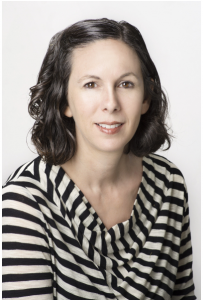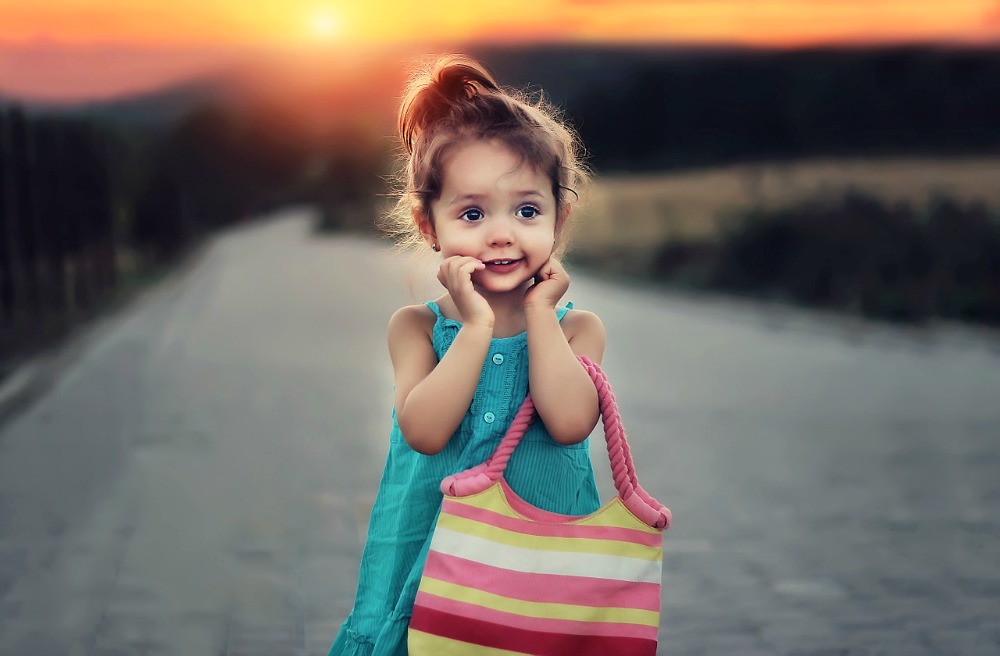I decided I wanted to be a child therapist long before I ever had children. I finished graduate school before I even began motherhood. I knew all the signs and symptoms of every childhood mental health disorder before my first child entered the world. You would think I was well prepared. You would think if anyone could handle anxious kids – it would be me. Apparently the universe shared the same sentiment – as it dutifully delivered me child after child with some form of anxiety in their DNA.
At first I was in denial. I quickly rebuked my education and my profession and thought, “Come on! These things seem normal to me. My kids do all of those things. What’s the big deal?”
Eventually the reality started to sink in. No, not every kid does that. No, not every parent has to worry about going on the highway – because their three year old goes into a panic. No, not every parent has to talk to their five year old about what will happen when they die.
After twelve years and three children later – I have embraced anxiety as much as I embrace my children. My children have taught me more about life than any textbook ever did. I have realized that anxious kids have much to teach us.
The lessons anxious kids teach us…
-
That we need to believe in them – not in their fear.
Early on I found myself accommodating my child’s fear. She doesn’t like highways – I should find an alternative route. She doesn’t like elevators – let’s find the stairs. Over time – she would surprise me with her tenacity and her ability to dig deep and face her fears.
I realized that she was more of a fighter than I was allowing her to be. That she was tired of her worries and she wanted them to go away. Instead of turning away from her fears – I began to hold her hand and we faced them together. One small step at a time.
-
That our fears aren’t always their fears.
Time and time again my children have awed and inspired me. I have inadvertently put them and their worries into tiny, predictable boxes. I play out scenarios in my head and anticipate how situations will unfold. Luckily I have often been wrong.
I have realized – I can’t underestimate my children.
I think I was more nervous about kindergarten than my son. I walked him to the gate on the first day – waiting for the meltdown. Waiting for the battle to start. Wondering if the school counselor was in on the first day. He turned to me and said, “You can go. I’m good.” And – he didn’t look back. Not once.
-
That our words can tear them down and lift them up.
Anxious children tend to be much more sensitive in general. My kids are no exception. They love hard and hurt hard. Sensitive children often have the biggest hearts. My three year old is the first to notice when I am having a bad day. She is also the first one to sulk in a corner for hours when I correct her behavior. She is the one who frequently asks, “Are you proud of me?” five zillion times a day.
I realize that my words have weight.
They are actively shaping the way she views herself. I have learned to be cautious with my words – as they can tear my little girl down in a heart beat or they can lift her up. I am in the process of helping her develop her own inner dialogue. That could be good or that could be bad – it was up to me.
-
That they are watching.
They are watching our reaction. They are watching our emotions. They are watching our choices. Anxious children are observant. My kids notice my subtle tone change. They hear the high pitch of my nerves.
Emotions are contagious. Especially when your children look for you to be their anchor.
When I am nervous – they are nervous. Sometimes unfortunately when they wouldn’t have been otherwise. I have had to develop a good poker face. Sometimes I can do this – and sometimes I fail. But, I always try my best.
I have learned to stop worrying about their worries – as much. I take one day at a time. One fear, phobia, struggle – at a time.
I remember when my oldest daughter couldn’t sleep unless she was holding my hand. I thought she’d sleep next to me forever. She is now twelve and would deny that ever happened. Oh, it happened.
I remember not too long ago when I thought my youngest would never go poop in the potty. Her fear was palpable – as she walked around holding her bottom saying, “I no poop. I no poop!” That too has passed.
We are on to the next challenges life inevitably brings – but with a new belief. A belief in my children. In anxious children. A belief in their strength. In our strength. A knowledge that we can get through whatever life wants to throw at us – one day at a time.
About the Author: Natasha Daniels
Natasha is a Child Therapist and a mother to three vibrant, challenging and insightful children who keep her on her toes! She created her website, Anxious Toddlers, to offer support, guidance and laughs to parents of toddlers. She has spent the last fifteen years working with toddlers in her practice and helping families with parenting issues at Hill Child Counseling – ‘Sometimes toddlers can feel like a different species and I hope to help unlock the mystery of how to keep your little one smiling, laughing and enjoying the moment one day at a time.’
Natasha is a Clinical Social Worker and she received her post-graduate training in infant and toddler mental health at The Harris Institute. She is one of only a handful of child therapists who offer a specialty in toddler mental health and who has a practice that offers counseling to families on toddler parenting issues.
She spends half her week in her practice and the other half of her week soaking up the innocence of her children and enjoying the simpler things in life.
Her book How to Parent Your Anxious Toddler is available at all major book stores or it can be purchased directly from Jessica Kingsley Publishers.
You can find Natasha at her website, Anxious Toddlers, on Facebook, Pinterest, Twitter, Instagram, or making parenting videos for Curious.com.



Any advice on how to parent an anxious 9 year old when the anxiety is starting to limit what she does in life, and really affecting the rest of the family? How do we keep caring on when every day feels like a battle?
I completely understand how difficult this can be. Here is an article with practical strategies https://www.heysigmund.com/anxiety-in-kids/, but you’ll find plenty of information on this link https://www.heysigmund.com/category/being-human/anxiety/.
Love the articles!